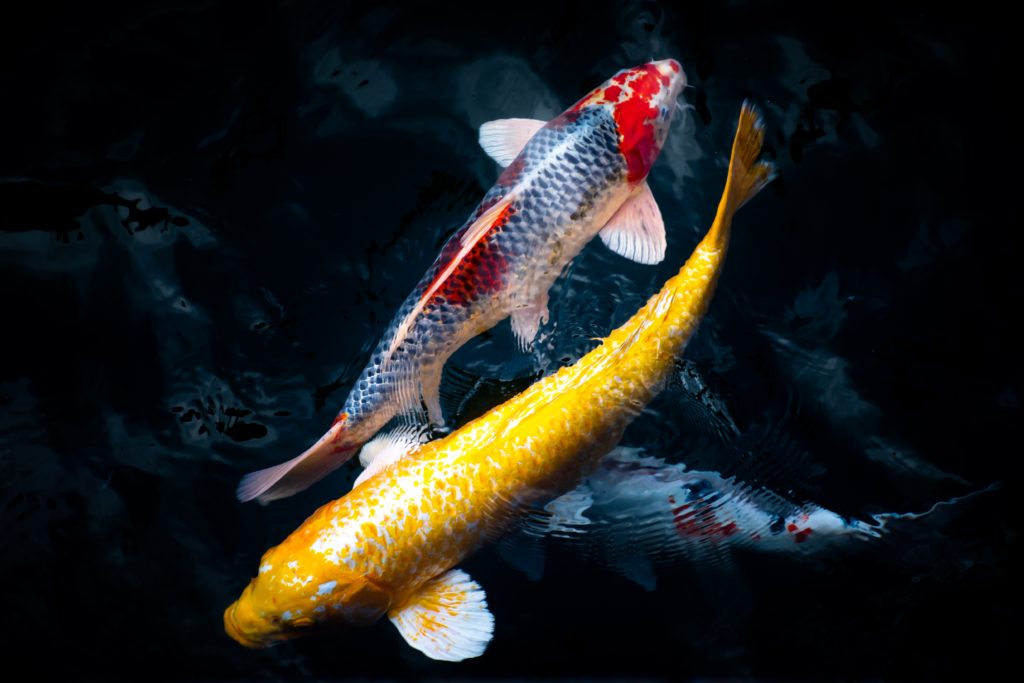“That’s just the first part. What others call you, you become. It’s a terrible magic that everyone can do — so do it. Call yourself what you wish to become.”
—Catherynne M. Valente, The Girl Who Soared Over Fairyland and Cut the Moon in Two
The majority of my job as a psychologist is helping people untangle the damage language can cause — damage from toxic things others have said to them or they’ve said to themselves. Sometimes, therapy’s about helping them understand how the language we use influences how we think. But one of my favorite parts of being a psychologist is helping people create new, empowering identities.
It all starts with choosing the right labels to give ourselves. We can heal from the damage done by toxic language. We can learn how to use words to rebuild our identities into something powerful.
There’s hope, no matter how much bad shit you’ve been through in your life. This article is about that hope and what I’ve learned over the years working with people who have healed from the damage words can cause.
•••
Choose Wisely
The more you let a single belief define you, the less capable you are of adapting when life challenges you.
—James Clear, author of Atomic Habits
What labels do you want to build your identity around? Rigid labels can fix us in place and make us feel lost. But choose flexible ones that adapt with you, and you’re well on your way to success.
Many athletes go through an identity crisis when an injury forces them into early retirement, parents get “empty nest syndrome” when their children leave to start their own lives, and many people develop depression after losing their job because they can’t be the “provider” anymore.
Each of these involves connecting your identity to something outside yourself . When you no longer have that external thing to attach to, where does that leave you?
The labels you use can work as an internal operating system to weather the storm and stay on the path. Labeling yourself a failure, hopeless, or unlovable primes your brain to seek out experiences that reinforce those beliefs.
Choosing an empowering label does the same thing — your brain will seek out experiences in your past, present, and future that align with that identity.
Here are seven self-labels you can use to develop an empowered mindset:
1. Survivor
Courtney had been sexually abused throughout her life. She labeled herself a victim, which is how many people would identify themselves after experiencing severe trauma. That’s even how the newspapers describe it: a victim of sexual assault.
She didn’t trust people, especially men. She expected danger anytime she left her house. She was in a constant state of emotional hyper-reactivity and struggled to cope with even minor hassles. She felt like everything was out of her control.
She couldn’t control what had happened in her past — that’s true, but she could control how she thought about it in the present.
We worked together to help her learn to see herself — to label herself — as a survivor of sexual assault instead of a victim. The events didn’t change, but her beliefs about them and what they meant to her did.
Once she started labeling herself as a survivor, she started feeling empowered and developed what psychologists call post-traumatic growth. She wasn’t afraid of everyone she met, stopped pushing people away, and was able to begin developing genuine connections with others — all because her identity as a survivor shifted her perception of herself and the world around her.
Think of everything you’ve survived in your life. Developing an identity as a survivor empowers you to persevere through hardships. Adversity, struggles, failures— these are unavoidable in life. But you — and only you — can choose whether you’ll be a victim of what life throws at you, or if you’ll be a survivor — someone who faces life’s obstacles and comes out victorious.
To survive is to succeed.
2. Adaptable
Marines are trained to improvise, adapt, and overcome “any obstacle in whatever situation they are needed.” Marines are badasses — being adaptable is part of that badassery.
Saying you’re an adaptable person allows your mind to look back at past events and focus on the times when you overcame seemingly insurmountable odds, which will give you a sense of empowerment in your present moment of uncertainty.
Your mind will say, I got this. I’ve been through worse. I know I’ll make it out successfully.
Even if you don’t know how you’ll make it out, you know that you will.
3. Hard worker
Being a hard worker has nothing to do with your body; it’s about your mental fortitude to put in the effort — that may be studying, going to physical therapy after an injury, or learning how to talk again after a stroke.
A popular teaching in Stoicism is that we don’t control the outcome of events, but we do control the effort we put into them.
So focus on your effort, not the outcome.
4. Compassionate
Showing compassion to others and ourselves takes zero money, can be done anywhere and anytime, is independent of whether we graduated at the top of our class or dropped out, and will always be the right thing to do if you want to make the world a little better.
When in doubt, be compassionate.
5. Wisdom-seeker
Amor fati is a term popularized by Friedrich Nietzsche, which means “love of fate.” This echoes a quote by the Roman Emperor Marcus Aurelius,
“A blazing fire makes flame and brightness out of everything that is thrown into it.”
If your goal is to gain wisdom, then nothing can happen to you that doesn’t have some lesson embedded within it.
Everything is fuel for your fire.
6. Lifelong learner
I spent over a decade in college to earn my doctorate. The main thing I learned was the importance of being a lifelong learner.
Otherwise, your beliefs and understanding of the world fossilize. Too many “experts” in their field have outdated ideas and understandings because they stopped learning after they graduated.
Learning is an instant cure for boredom. Pick up a book or pop on a documentary and give your brain some nutrition.
There’s always something you can learn — either new subjects or nuances of topics you’re already familiar with.
7. Martial artist
Identifying as a martial artist may seem like it’s focused on physicality, but take the words of former UFC champion George St. Pierre:
There is a difference between a fighter and a martial artist. A fighter is training for a purpose: He has a fight. I’m a martial artist. I don’t train for a fight. I train for myself. I’m training all the time. My goal is perfection. But I will never reach perfection.
—George St. Pierre
Being a martial artist is a highly mental discipline — dealing with pressure, controlling your emotions, approaching challenges strategically, being a role model, and always refining yourself and your techniques. It has nothing to do with how many pushups or spinning roundhouse kicks you can do.
•••
Takeaways
What do these labels have in common? They’re all about a mindset rather than external accoutrements. Your body can fail, you can lose your job, people you care about may die, or your cognitive abilities may decline. These are out of your control.
Empowering labels help us grow, overcome obstacles, shed the bullshit we’ve been told, and show compassion to ourselves and others.
Labels are a double-edged sword, but one we can learn to wield. So when you’re choosing labels to mold your identity around, choose ones of empowerment — they’ll get you further than the negative ones.
Pick labels with lasting power. Focus on the internal qualities you want to cultivate to live a meaningful life.
What empowering labels are you going to start using?
•••
P.S.
This is Part 3 of a series on understanding how the language we use affects us. If you’re interested, check out Part 1: How to Take Back Control When You Feel Broken and Part 2: The Subtle Way Language Hijacks Our Perceptions.



